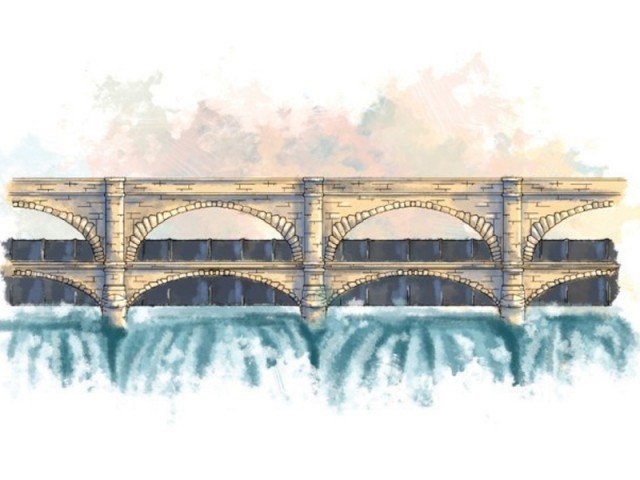
ISLAMABAD: After the recent talks in Washington, Pakistan is expecting a positive response from the World Bank (WB) over controversial Kishanganga Hydropower Plant, which, Islamabad believes, has been built by New Delhi in violation of the Indus Water Treaty (IWT).
A high-level Pakistani delegation, led by Attorney General for Pakistan (AGP) Ashtar Ausaf Ali, met the WB officials on May 21 and 22 to put their case across about height of the dam, its capacity to accumulate water, and Pakistan’s demand for establishment of court of arbitration to settle the dispute.
Besides Ali, Indus Water Commissioner Mehr Ali Shah, Water and Resources Secretary Shamail Khawaja and Ministry of Foreign Affairs spokesman Mohammed Faisal were also part of the delegation.
Background talks with senior officials who are privy to the development suggest positive developments in coming months from the WB side.
Kishanganga decision likely in a fortnight
In a first, the WB also sent a letter to the AGP office a week after the visit of the delegation, discussing working with Pakistan in various areas including construction of dams, their feasibility studies and rehabilitation and assistance in construction of dams.
Pakistan has to decide about the options to choose from and it is likely that interim Prime Minister Nasirul Mulk will have the final say.
Water and Power Resources Secretary Shamail Ahmad told The Express Tribune that the talks with the WB had been positive and so were the expectations after the dialogue.
“We are expecting a decent response following our comprehensive talks with the WB officials,” said Ahmad, adding that Pakistan put its case in comprehensive manner.
He said after the negotiations it was evident that their case was genuine and the WB officials expressed willingness to assist Pakistan. Now a delegation is also coming to Pakistan this month to discuss certain issues, including those related to water.
Ahmad was of the view that the WB had expressed its desire in helping out in institutional capacity building, feasibilities of water resources and water sector development.
The Indus rivers system comprises three rivers – Indus, Jhelum and Chenab – on the western side while three eastern rivers include Sutlej, Beas and Ravi. The controversial Kishanganga dam, inaugurated in May, is built on Neelum – a tributary of the Jhelum River.
The 1960 IWT gives Pakistan exclusive rights for usage of the western rivers while the eastern rivers have gone to India. According to the treaty, India is allowed to construct hydroelectric power installations on the above-mentioned rivers subject to conditions mentioned in sub-clauses of the treaty.
Pakistan cries foul over India’s bid to inaugurate Kishenganga dam
It was on August 19, 2016 when Pakistan approached the WB to appoint a court of arbitration to review the designs of Kishanganga which it termed a violation of the IWT. India has been rejecting the notion that it were of the nature that a neutral expert could decide about it.
Another source commented that the WB was also hamstrung because of the Indian lobby and there was little it could promise Pakistan. “Now it is expected that they will come up with the logical response and there are signs it will be,” said the official who said the IWT’s provision were equally double-edged.
The official said hopes were pinned on the response from the WB and the visit of its delegation.
On Saturday, Senator Rehman Malik also lamented that Pakistan did not pursue the case of Kishanganga on time while the country was facing water shortages. “I will raise this matter in Senate and demand probe into the failure to pursue the case properly,” he said.





































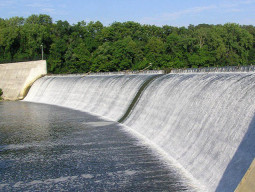
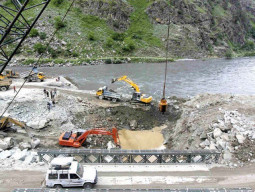

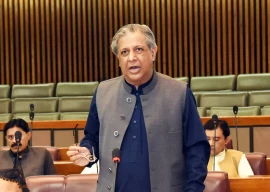
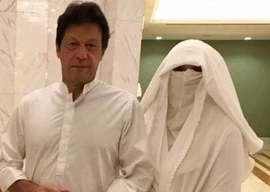
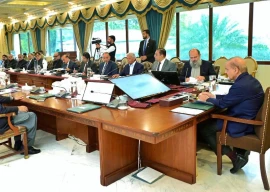























COMMENTS (2)
Comments are moderated and generally will be posted if they are on-topic and not abusive.
For more information, please see our Comments FAQ